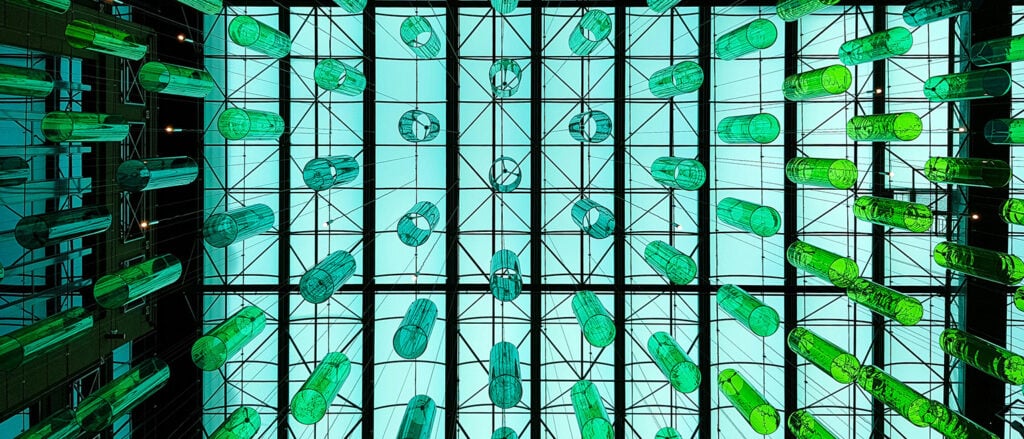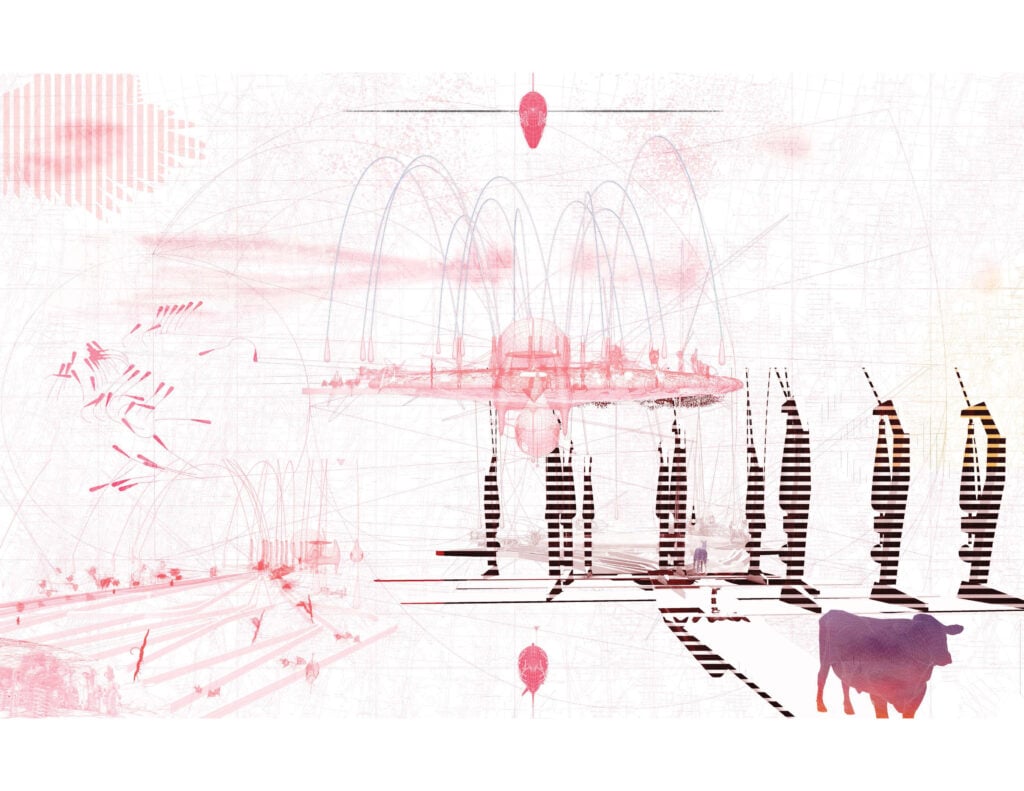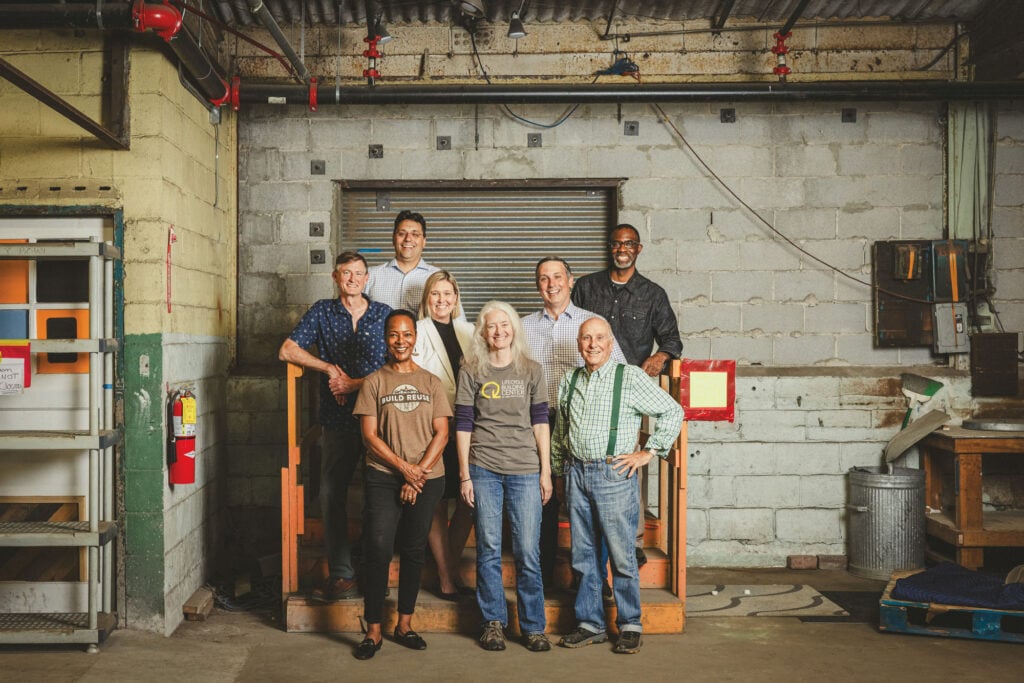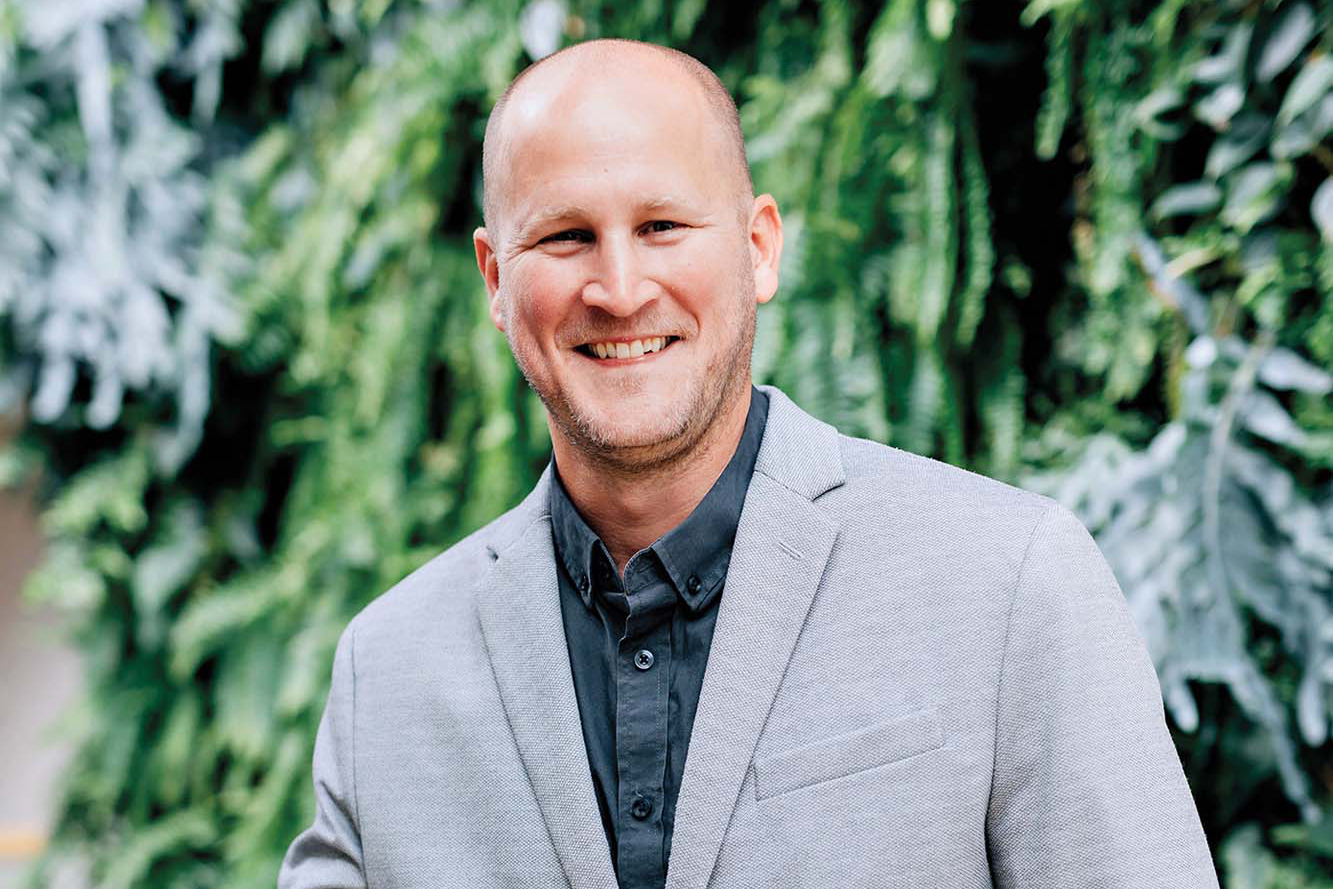
July 12, 2023
Specify Hot List: Jarod Brames on the Environmental Legacy of OFS
Sustability at OFS began in the 1960s with the environmentalist views of the current CEO’s father. Director of sustainability Jarod Brames explains how Bob Menke’s philosophy continues to inform the company’s products.
Specify: How has the company’s specific vision for sustainability evolved?
Jarod Brames: The foundation of sustainability at OFS was created back in the 1960s with Bob Menke [father of current president and CEO Hank Menke]. Bob was advocating for proper forest management, pollution prevention, and the reduction of potentially harmful chemicals.
OFS was a much smaller company then and was mainly focused on the wood products industry. The efficiency-mindedness of a woodworker coupled with this environmental awareness led to the philosophy around sustainability that has been persistent through our years of operation.
The vision we have for sustainability moving forward is to build upon that foundation and put into action initiatives that address modern concerns, of which there are many! So we have to be strategic in what we would like to accomplish and what our customers, colleagues, and communities would like us to accomplish, and what our approaches should be in trying to tackle these challenges. Recently we put together a low-carbon transition plan that lays out a framework for reducing our carbon footprint.
Specify: And how is that going so far?
JB: We have a good grasp on our Scope 1 and Scope 2 emissions and actions that can be taken to lower these impacts. We recognize, though, that we have a lot of work in front of us gathering Scope 3 emissions and the embodied carbon within our products—both of which are imperative to understanding our organization-wide footprint.
We are also continuing our work regarding the chemicals within our products and any potential impacts on the environment or human health they could present. When it comes to products, transparency is our first goal. Reductions of both carbon emissions and potentially harmful chemicals come next. Creating products and processes that are conducive to healthy environments both inside and out is the overall goal.
Specify: What’s the company’s design process, and how does it intersect with craftsmanship, sustainability, and innovation?
JB: Part of the vision for sustainability that I mentioned above is to be sure our initiatives align with the OFS values. Two of OFS’s company values are stewardship and simplicity. During any product design brief these two values are addressed either directly or indirectly: directly through clearly communicated goals for material use or a desire for specific sustainable attributes, and indirectly by working with specific designers and product developers that have a natural tendency to simplify the design process.
The Zero guest seating collection is a good example of a simplified, or minimalistic, design. It can be quickly assembled and disassembled to easily replace, restore, and reuse components. This increases its longevity and allows for easy separation of materials for recycling at the end of its life. The small number of components also makes it easier to document embodied carbon as well as a chemical inventory for the chair, adding to its marketability and our goals for material transparency.
Specify: How are your and OFS’s design priorities changing the way you engage specifiers?
JB: Specifiers can have a wide range of goals for any given project. If we can design products that inherently meet a large number of these priorities, then we are simplifying the process for them. Sustainability is undoubtedly a frequent priority. If we can ensure that the materials and processes used to create our furniture meet specific sustainability standards and demands for transparency, then we’re adding value to that relationship.
Functionality and aesthetics are also high priorities. If we can design a product that can be easily reconfigured to meet changing needs, then again, we are increasing that product’s longevity. A product’s staying power increases even further if it happens to look fantastic!
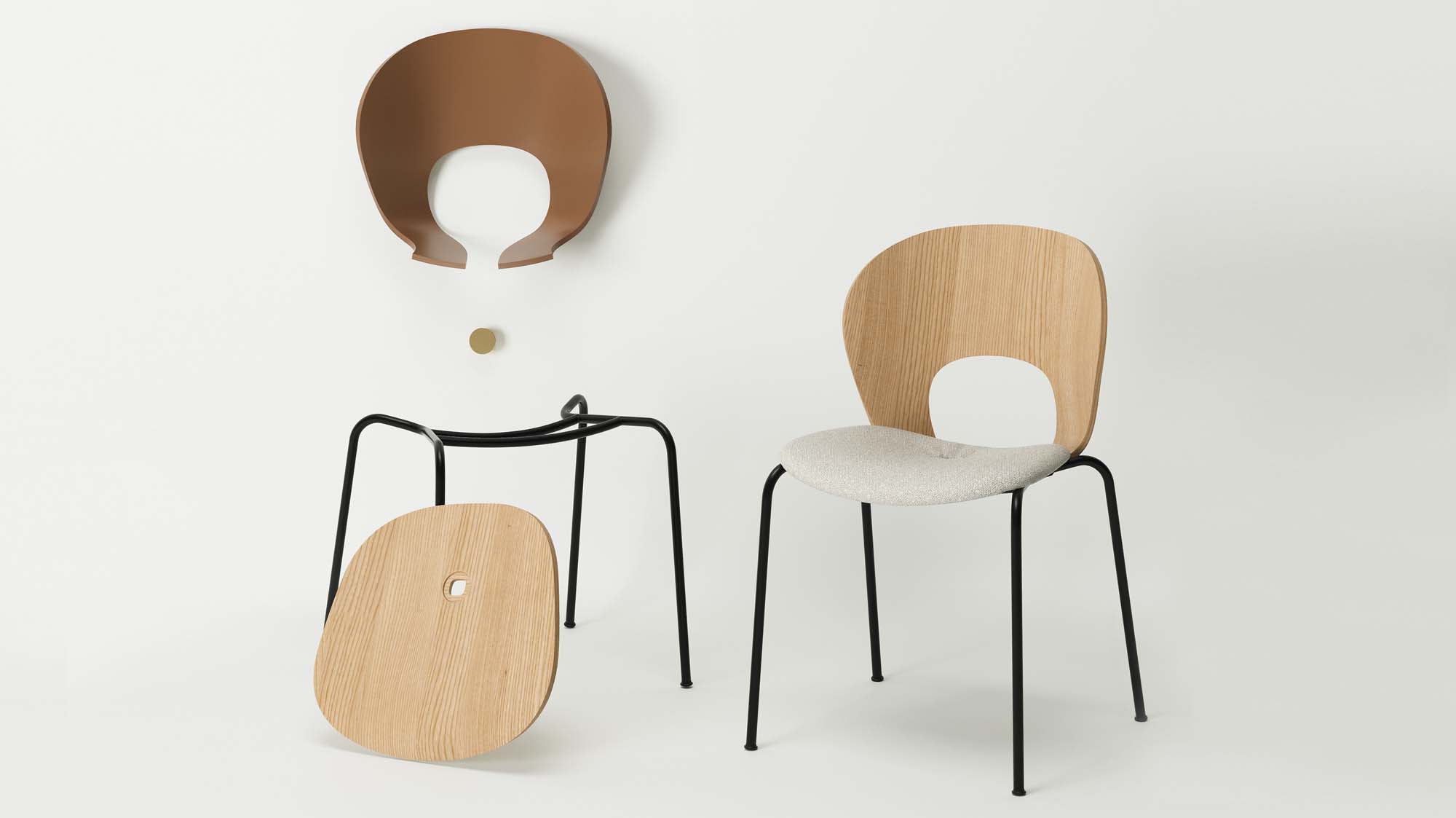
Would you like to comment on this article? Send your thoughts to: [email protected]
Related
Viewpoints
ThinkLab Shares Insights on the Dynamics of Sustainability in Decision-Making
ThinkLab helps us understand how the realities of product selection can maximize designers’ influence and impact.
Profiles
Students Imagine New Ways to Deepen Our Connection to Our Environment
Students from University of Pennsylvania, University of Michigan and Imagine New Ways to Deepen Our Connection to Our Environment
Profiles
Shannon Goodman is Helping Make Material Reuse the Norm
The former Perkins&Will architect and executive director of the Lifecycle Building Center is part of a community that is breaking systemic barriers and keeping reusable materials out of landfills.



